There’s no shortage of books on the market with people with substance use disorders sharing their stories. In fact, my good friend and fellow Addiction Freedom Now writer, Jim Haggerty, wrote a post for us last year that you can also check out here: Best Books for Those in Addiction Recovery. His recommendations include traditional AA selection, workbooks, journals, coloring books and gift ideas. So, please head on over to our previous post for more there.
For this post, I sat down to consider what makes a recovery book “good” and put together a list of some of my favorites and ones worth checking out.
Top Books for Addiction Recovery
Not all books about recovery will resonate with every reader, so I’ve tried to select a list of books with a wide array of experiences and a number of relevant topics for heading out on the road to recovery.
Quit Like a Woman: The Radical Choice to Not Drink in a Culture Obsessed with Alcohol by Holly Whitaker
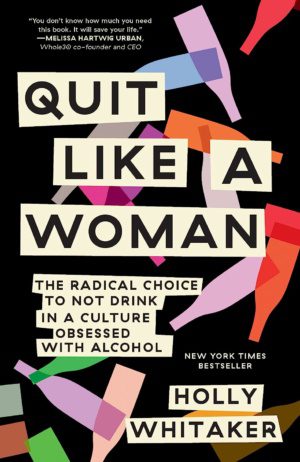
It’s no secret that alcohol has a prominent place in our culture, with much of society and social gatherings built upon the drink. Many parties have an expectation of having alcohol on the menu, and it’s hard to finish watching anything on television without being reminded of beer.
Holly Whitaker wrote her book Quit Like a Woman to examine the prevalence of alcohol in our society. She noticed how the questions always focused on why someone wasn’t drinking rather than asking why someone had to drink at all.
Not only does this book seek to highlight the ways our culture is obsessed with alcohol, but it also highlights a path forward and a roadmap to recovery and a happier life. While the title mentions women, it’s important to point out that anyone can benefit from this recovery book.
The Unexpected Joy of Being Sober by Catherine Gray
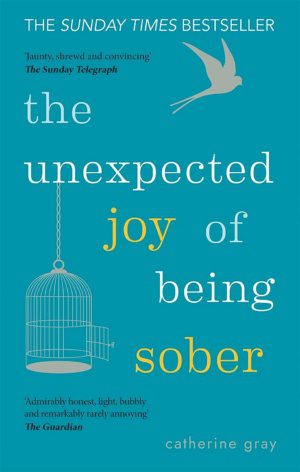
Catherine Gray wrote this book while reflecting on getting caught in a cycle of drinking, hangovers, and unhappy days. In The Unexpected Joy of Being Sober, she encourages the reader to seek a world where they aren’t struggling with substance use disorder. Gray describes scenes with no hangovers or messy breakups – a world where one can just enjoy the holidays without a drink in one hand.
Instead of focusing on the dourness and difficulty of a substance use disorder, Gray tries to write a hopeful story about just how intoxicating it can be to live a life of sobriety. This positivity and the tale of happiness may be all it takes to encourage someone to take the next step on the path to recovery.
If you’re looking for a book heavy on inspiration and hope, I recommend checking this book out. Whether you are just beginning to work toward recovery or need some motivation along the way, you’ll find something worth reading on these pages.
Codependent No More: How to Stop Controlling Others and Start Caring for Yourself by Melody Beattie
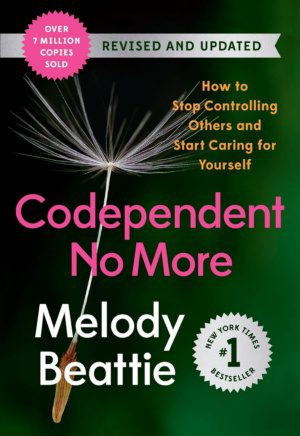
When I get a question like, “What are some good books about addiction?” I immediately reach for this one. Codependent No More: How to Stop Controlling Others and Start Caring for Yourself is a guide to help you understand the ways you can change and improve yourself. This is not just a book about substance use disorder but rather about caring for yourself and changing yourself. For that reason, I recommend it for family members and people experiencing addiction alike.
Too often in our lives, we find ourselves doing things for other people and making their problems our problems. This behavior can lead to self-destruction and trouble coping. Author Melody Beattie gives us a plan on how to take care of ourselves and avoid developing unhealthy codependency on other people or substances. She relates personal stories and anecdotes to let you into her mental process and life.
Codependent No More is one of my favorites, and I believe it can help you answer some questions about yourself and put yourself on a better path forward.
Sober On A Drunk Planet: Giving Up Alcohol. The Unexpected Shortcut to Finding Happiness, Health, and Financial Freedom by Sean Alexander
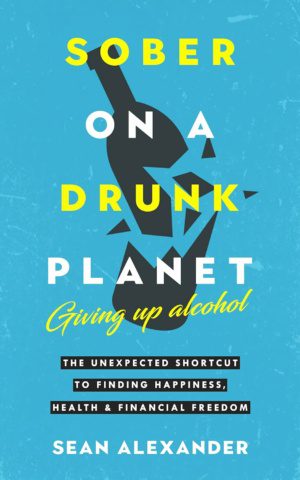
If you find yourself lacking motivation or struggling to understand what the process is all about, this book from Sean Alexander is well worth reading. In “Sober on a Drunk Planet,” Alexander paints a picture of several parts of our lives that will improve after cutting alcohol out of the picture. I like that it focuses on the positives and gives people who drink alcohol something to believe in and hold on to.
Alexander highlights eight crucial areas that will show marked improvement as you proceed into sobriety. He also seeks to answer several of the big questions many who flirt with the idea of sobriety ask, such as wondering if AA will work for them or how alcohol creates a negative feedback loop.
Sober on a Drunk Planet is perfect when you feel yourself losing morale and need a boost to keep going on your journey.
Twelve Steps and Twelve Traditions by Alcoholics Anonymous World Services Inc.
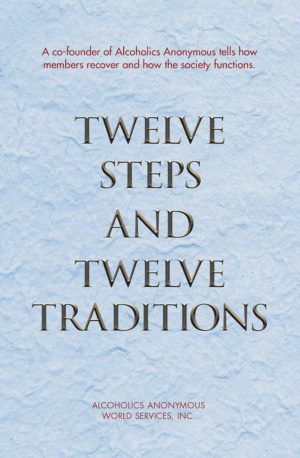
You’ve surely heard of Alcoholics Anonymous, and the program is one of the most famous recovery groups on the planet. While AA isn’t for everyone, it’s difficult to deny that many people connect with the method.
Twelve Steps and Twelve Traditions is a series of essays that speak on the program’s basic program and show the examples and applications of each step. Reading this book should give you an idea of the program and help you determine if it is worth pursuing for you. Or, it might help you find a new technique for dealing with life’s challenges.
We Are the Luckiest: The Surprising Magic of a Sober Life by Laura McKowen
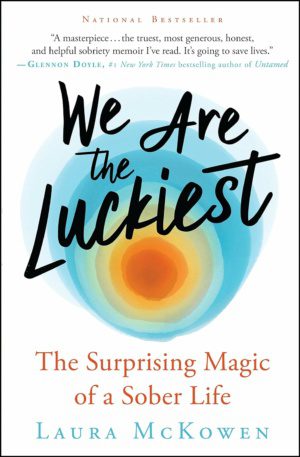
I can’t count the number of times I’ve heard someone talk about the blissfulness of ignorance. While it may seem nice not to understand the dangers and difficulties of the world, author Laura McKowen realizes that something is empowering about realizing you need to make a change in your life.
In We Are the Luckiest, McKowen relates the stories of her early struggles with sobriety and the difficulties she went through. But McKowen does not want us to despair at this fact; rather she wants readers to see the beauty in being honest with yourself and realizing it’s time for a change and more happiness in our lives.
Why Don’t You Drink Alcohol?: 101 Reasons To Stop Drinking Like A Woman Called Karen And Why Sobriety Is The Key To Unleashing Your Best Self by Sienna Green
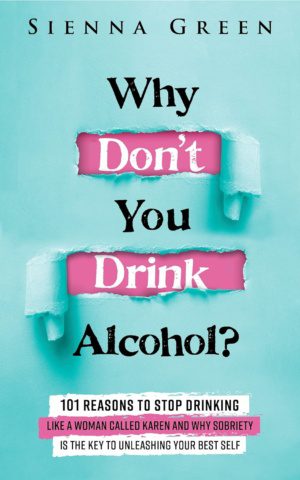
I believe that sometimes there is nothing as effective as a surprising but true fact. When there are so many opinions and so much noise floating around, someone telling you the truth is the most refreshing thing you can hear. In Why Don’t You Drink Alcohol? Sienna Green provides some of the most shocking statistics about alcohol consumption for women to give you a real idea of the cost of drinking.
Drug companies spend untold amounts of money trying to convince us of the safety of their products, but someone with a substance use disorder needs to understand the real cost of continuing their behavior and the benefits of taking a step on the path to recovery.
The Weight of Air: A Story of the Lies about Addiction and the Truth about Recovery by David Poses
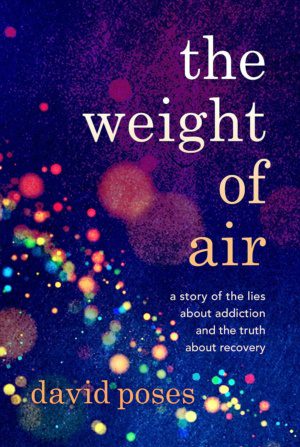
Substance use disorder may take us to dark places and lead us to take actions we never would have considered in other circumstances. David Poses paints a picture of the struggle the road to recovery can be and the ways he was able to pull his life out of the tailspin and thrive.
I like this book because it gives an honest, gritty account of what dealing with a substance use disorder is like. Poses shares intimate details of his life and lets us see his mental state as he fought to save his life over 13 years. In the end, he takes a different path than others, but he finds a treatment that works for him and is better off for it.
Alcohol and You by Lewis David
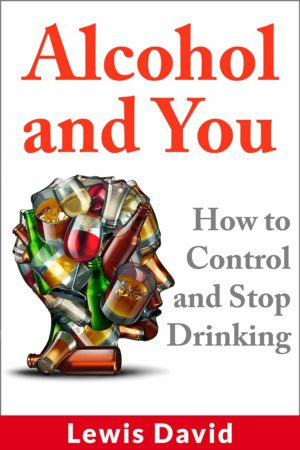
While it is a common form, there are many books on substance use disorder not written as memoirs of those who have struggled with drugs or alcohol in the past. Some books come from those who have worked with people dealing with substance use disorder, such as Alcohol and You by Lewis David.
David has spent several years working as a therapist and has helped hundreds of people with substance use disorder. He’s taken that knowledge and distilled it into this book. Free of technical terms and hard-to-follow advice, David provides a clear and uplifting approach to dealing with issues.
While Alcohol and You may not be able to replace a visit to a therapist, it can give you beneficial techniques that will help you stay on the path.
Allen Carr’s Easy Way to Control Alcohol by Allen Carr
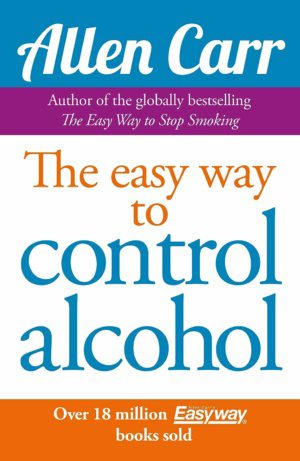
Allen Carr has been a fixture in the industry for many years, and books are some of the most popular for those seeking motivation or techniques for dealing with substance use disorder. Carr’s Easy Way to Control Alcohol seeks to give readers a step-by-step process for cutting alcohol out of their lives for good.
Carr believes his method makes quitting as easy as it can possibly be by taking much of the guesswork out of the equation. The author has written numerous other books about substance use disorders and has helped many people get the help they need with alcohol or nicotine.
Top 100 Best-Selling Books on Addiction & Recovery
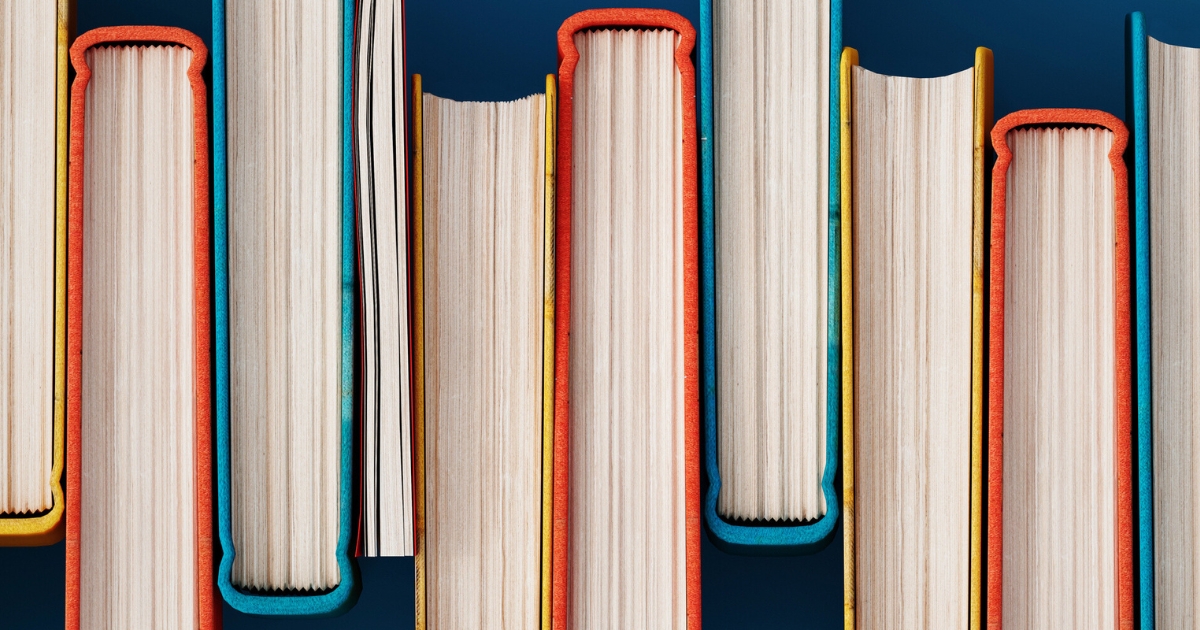
While these are some of my favorites and some of the best addiction recovery books, I know they may not be to everyone’s taste. If you didn’t see anything here that jumped out at you, or if you’re looking for something new you haven’t heard of yet, here’s a list of the top 100 books to check out.
- “Beautiful Boy: A Father’s Journey Through His Son’s Meth Addiction” by David Sheff
- “A Million Little Pieces” by James Frey
- “In the Realm of Hungry Ghosts: Close Encounters with Addiction” by Gabor Maté
- “Crank (Crank, #1)” by Ellen Hopkins
- “Go Ask Alice” by Anonymous
- “The Glass Castle” by Jeannette Walls
- “Tweak: Growing Up on Methamphetamines” by Nic Sheff
- “Dry” by Augusten Burroughs
- “Hey, Kiddo” by Jarrett J. Krosoczka
- “Alcoholics Anonymous: The Big Book” by Anonymous
- “Daisy Jones & The Six” by Taylor Jenkins Reid
- “Hillbilly Elegy: A Memoir of a Family and Culture in Crisis” by J.D. Vance
- “Glass (Crank, #2)” by Ellen Hopkins
- “Drinking: A Love Story” by Caroline Knapp
- “Dopesick: Dealers, Doctors, and the Drug Company that Addicted America” by Beth Macy
- “The Girl on the Train” by Paula Hawkins
- “Recovery: Freedom from Our Addictions” by Russell Brand
- “Blackout: Remembering the Things I Drank to Forget” by Sarah Hepola
- High Achiever: The Incredible True Story of One Addict’s Double Life” by Tiffany Jenkins
- “Chasing the Scream: The First and Last Days of the War on Drugs” by Johann Hari
- “The Heroin Diaries: A Year in the Life of a Shattered Rock Star” by Nikki Sixx
- “Fallout (Crank, #3)” by Ellen Hopkins
- “Dreamland: The True Tale of America’s Opiate Epidemic” by Sam Quinones
- “Requiem for a Dream” by Hubert Selby Jr.
- “Unbroken Brain: A Revolutionary New Way of Understanding Addiction” by Maia Szalavitz
- “Codependent No More: How to Stop Controlling Others and Start Caring for Yourself” by Melody Beattie
- “The Absolutely True Diary of a Part-Time Indian” by Sherman Alexie
- “Wishful Drinking” by Carrie Fisher
- “Tricks (Tricks, #1)” by Ellen Hopkins
- “Heroine” by Mindy McGinnis
- “Lit: A Memoir” by Mary Karr
- “Smashed: Story of a Drunken Girlhood” by Koren Zailckas
- “Junky: The Definitive Text of ‘Junk'” by William S. Burroughs
- “Jesus’ Son: Stories” by Denis Johnson
- “Addicted to You (Addicted, #1)” by Krista Ritchie and Becca Ritchie
- “Identical” by Ellen Hopkins
- “Choke” by Chuck Palahniuk
- “The Seventh Wish” by Kate Messner
- “Addicted for Now (Addicted, #2)” by Krista Ritchie and Becca Ritchie
- “Infinite Jest” by David Foster Wallace
- “Never Enough: The Neuroscience and Experience of Addiction” by Judith Grisel
- “Sunny Side Up (Sunny, #1)” by Jennifer L. Holm
- “Lead (Stage Dive, #3)” by Kylie Scott
- “The Goldfinch” by Donna Tartt
- “Wild: From Lost to Found on the Pacific Crest Trail” by Cheryl Strayed
- “Fear and Loathing in Las Vegas” by Hunter S. Thompson
- “Impulse (Impulse, #1)” by Ellen Hopkins
- “The Shining” by Stephen King
- “Addicted After All (Addicted, #3)” by Krista Ritchie and Becca Ritchie
- “The Recovering: Intoxication and Its Aftermath” by Leslie Jamison
- “Trainspotting” by Irvine Welsh
- “Midnight Blue” by L.J. Shen
- “Twelve Steps and Twelve Traditions” by Alcoholics Anonymous
- “My Friend Leonard” by James Frey
- “Ricochet (Addicted, #1.5)” by Krista Ritchie and Becca Ritchie
- “Portrait of an Addict as a Young Man” by Bill Clegg
- “Last Night I Sang to the Monster” by Benjamin Alire Sáenz
- “A Scanner Darkly” by Philip K. Dick
- “The Biology of Desire: Why Addiction Is Not a Disease” by Marc Lewis
- “Evicted: Poverty and Profit in the American City” by Matthew Desmond
- “Sharp Objects” by Gillian Flynn
- “Everything is Horrible and Wonderful: A Tragicomic Memoir of Genius, Heroin, Love, and Loss” by Stephanie Wittels Wachs
- “More, Now, Again: A Memoir of Addiction” by Elizabeth Wurtzel
- “A Piece of Cake: A Memoir” by Cupcake Brown
- “Long Bright River” by Liz Moore
- “The Night of the Gun: A Reporter Investigates the Darkest Story of His Life–His Own” by David Carr
- “The Woman in the Window” by A.J. Finn
- “All Fall Down” by Jennifer Weiner
- “Smack” by Melvin Burgess
- “Scar Tissue” by Anthony Kiedis
- “Clean: Overcoming Addiction and Ending America’s Greatest Tragedy” by David Sheff
- “Breaking Night: A Memoir of Forgiveness, Survival, and My Journey from Homeless to Harvard” by Liz Murray
- “A Little Life” by Hanya Yanagihara
- “Broken: My Story of Addiction and Redemption” by William Cope Moyers
- “Eleanor Oliphant Is Completely Fine” by Gail Honeyman
- “Far From You” by Tess Sharpe
- “We All Fall Down: Living with Addiction” by Nic Sheff
- “How to Murder Your Life” by Cat Marnell
- “How to Change Your Mind: What the New Science of Psychedelics Teaches Us About Consciousness, Dying, Addiction, Depression, and Transcendence” by Michael Pollan
- “Clean” by Amy Reed
- “Valley of the Dolls” by Jacqueline Susann
- “This Naked Mind: Control Alcohol, Find Freedom, Discover Happiness & Change Your Life” by Annie Grace
- “The Liars’ Club” by Mary Karr
- “Thrive (Addicted, #2.5)” by Krista Ritchie and Becca Ritchie
- “The Forever Fight: On Drugs, Alcohol and the Cycle of Addiction” by K.J. Gordon
- “Prozac Nation” by Elizabeth Wurtzel
- “Naked Lunch” by William S. Burroughs
- “Methland: The Death and Life of an American Small Town” by Nick Reding
- “Steadfast (True North, #2)” by Sarina Bowen
- “On the Come Up” by Angie Thomas
- “Pill Head: The Secret Life of a Painkiller Addict” by Joshua Lyon
- “We All Fall Down: Living with Addiction” by Nic Sheff
- “Addict Chick: Sex, Drugs & Rock ‘N’ Roll” by Amanda Meredith
- “The Lost Weekend” by Charles Jackson
- “The Basketball Diaries” by Jim Carroll
- “Tales of Addiction and Inspiration for Recovery: Twenty True Stories from the Soul” by Barbara Sinor
- “The Night of the Gun: A Reporter Investigates the Darkest Story of his Life. His Own.” by David Carr
- “Beneath a Meth Moon” by Jacqueline Woodson
- “Guts: The Endless Follies and Tiny Triumphs of a Giant Disaster” by Kristen Johnston
- “Drunk Mom: A Memoir” by Jowita Bydlowska
Children’s Books on Addiction
In another previous post, we delved into the world of children’s literature focusing on addiction and recovery. Recognizing the power of storytelling in shaping young minds, we explored how these books tactfully address such a complex issue in a way that is both understandable and age-appropriate for children.
These books feature relatable characters and situations, making it easier for children to grasp the realities of addiction and recovery. They serve as useful tools for parents and educators to initiate conversations about substance use disorders, offering insightful lessons wrapped in engaging narratives.
If you’re interested in discovering more about this genre, we invite you to revisit our detailed post on Children’s Books About Addiction and Recovery. From animal tales to stories about children and their parents, this guide offers a wealth of resources to help educate children about this important topic.
Wrapping Up: A Journey Through Recovery Literature
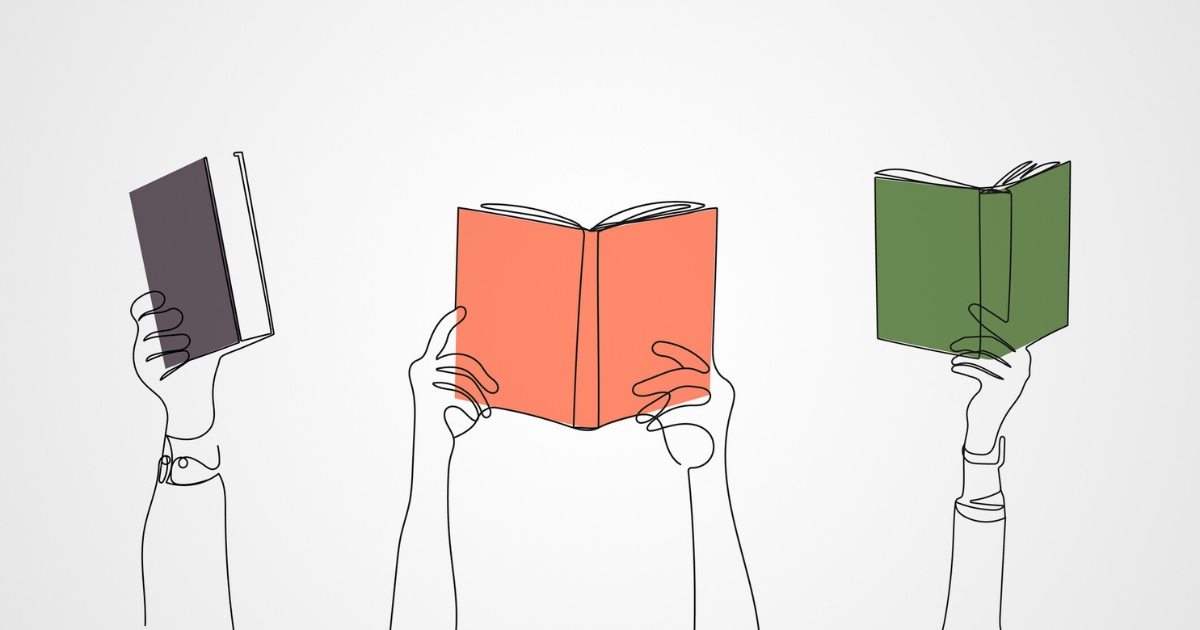
In conclusion, the world of addiction and recovery is a deeply personal one, intricately tied to individual experiences and struggles. The books listed in this post provide a wide array of perspectives on this topic, from memoirs of personal battles with addiction to insightful analyses of the societal factors that contribute to the problem. They offer not only understanding but also hope, portraying the resilience of the human spirit in the face of adversity. Whether you’re personally dealing with addiction, know someone who is, or simply wish to gain more insight into this complex issue, these books are invaluable resources.
Remember, knowledge is power, and understanding is the first step towards change.




